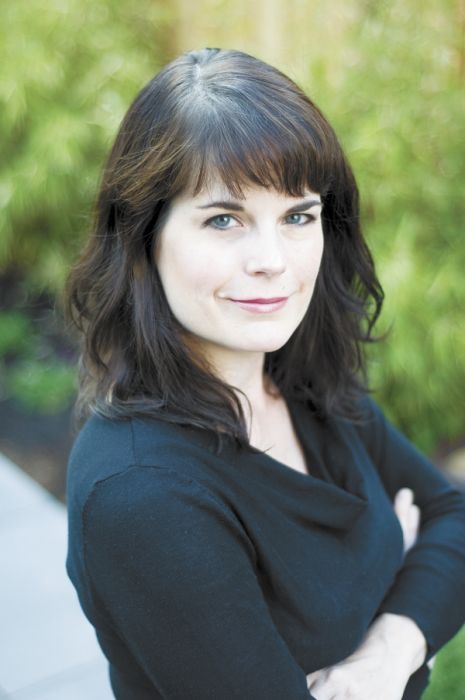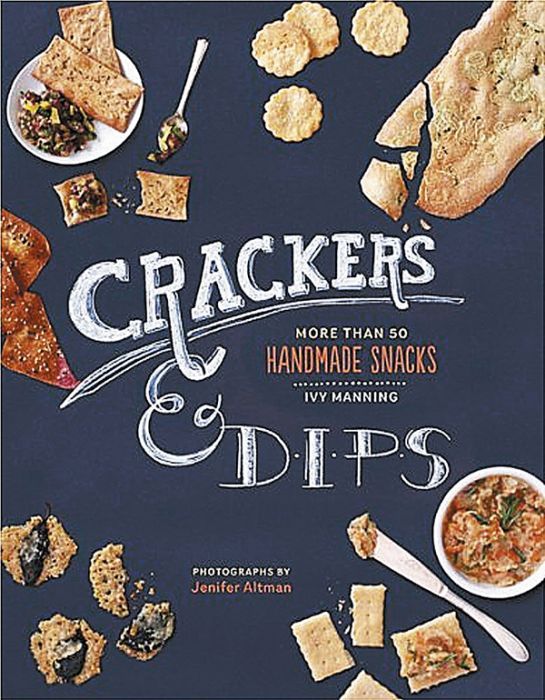Recipe for Discussion


Ivy Manning
Ivy Manning is a Portland-based freelance food and travel writer, food stylist and author of “The Farm to Table Cookbook: The Art of Eating Locally” and “The Adaptable Feast: Satisfying Meals for the Vegetarians, Vegans and Omnivores at Your Table.” Her work has been featured in Cooking Light, Sunset Magazine, Fine Cooking, Edible Portland, Bon Appétit and on www.culinate.com. Additionally, Manning is a regular contributor to The Oregonian FoodDay section with her column, Vegetarian Flavors.
Her most recent book, “Crackers & Dips: More than 50 Handmade Snacks,” released in May, capitalizes on the pure flavors of whole grains, real butter, cheese, fresh spices and no preservatives in her formulas for crunchy, sweet, and savory treats, all made to pair with a chapter’s worth of creamy, gooey dips and schmears.
After receiving a Bachelor of Arts in English from the University of Wisconsin-Madison, Manning attended Western Culinary Institute in Portland, followed by an externship at the award-winning Paley’s Place restaurant and stints at some of Portland’s best restaurants and stages in Italy and Thailand. Manning has been cooking, writing, and teaching in Portland ever since.
Manning travels the globe studying the cuisines of every country she visits, including cooking trips to Thailand, Italy, France, Mexico and the South Pacific. When her bags aren’t packed, she is writing, blogging at www.ivy
manning.com, cooking for her vegetarian husband, Gregor (the photographer of her books), and petting her retired greyhound, Mini.
OWP: How did you first become interested in the culinary world?
IM: I was born with the obsession. At a very young age, I was making clay food for my doll house. You know, little brown clay turkeys that were white inside when you sliced into them, bowls of clay green beans almondine… I made my first solo Thanksgiving meal at 13. I was a weird kid.
OWP: Who is your culinary mentor?
IM: My grandmother loves food as much as I do, so watching her was very influential. Just your classic Polish stuff — golumpki, pierogi, chrusciki — but they lived in a Catholic neighborhood in Kenosha, Wisc., so that meant their neighbors were Italian, so ravioli and Sunday gravy made it into her repertoire, too.
OWP: Who is your writing mentor?
IM: I had incredible English and Italian professors at the University of Wisconsin Madison who taught me how to write a solid book report. Lol. Professionally, Martha Holmberg was my first editor at The Oregonian FoodDay, and her gentle guidance was crucial. Her most valuable advice was to join IACP (International Association of Culinary Professionals), which has been invaluable; guilds are very important. She also told me I was a good writer, which is something every writer should believe or they’d never sit down to write anything!
OWP: Which wine variety do you like most?
IM: I am in the midst of a Piquepoul Blanc jag right now. We’re dry white wine drinkers, especially lesser known varietals, so Arneis, Pinot Blanc and Tocai Friulano are in frequent rotation. There’s surprise and nuance there, and there are still bargains to be had. That said, I love a good bottle of Oregon Pinot Noir, especially if it’s of a lighter style — Helioterra, Patti Green are favorites. I’m not a big fan of those bitch-slap high alcohol Pinot Noirs you need a knife and fork to get through; they make me sneezy.
OWP: Any general rules when pairing wines with vegetarian dishes?
IM: There’s no reason you can’t have a nice red wine with a robust vegetarian meal. The whole “red meat: red wine” thing is silly. I consider a) what part of the world the dish is from; b) the robustness of the dish vs. the wine — if the dish is delicate, so should be the wine; and c) when in doubt, a local rosé is usually fine with vegetable-centric dishes. I don’t love that “pair sweet wine with spicy food” thing, I must say. If I’m having a curry, I’ll have a lager — as the natives would. I’ll save the sweet for a glass or two of Port.
OWP: After traveling the globe, which country’s cuisine do you admire most?
IM: Italy. Even when you’re not trying to find a great meal there, the meal finds you. I just avoid the places with tourist menus. Last winter in Florence, I actually cried over a meal of roast pork and potatoes at a place we just stumbled into because it started to snow. The pork was so beautifully simple that I wept. Well, it actually might have been the bottle of Chianti Classico we split at lunch that did me in.
OWP: Name a cookbook you can’t live without?
IM: I love Nigel Slater’s “Ripe.” He gives me courage to write like I think and cook like no one is sharing the food with me.
OWP: Name a cookbook you just discovered this year and enjoy.
IM: I have been cooking a lot out of “Jerusalem and Plenty” by Yotam Ottolenghi. The flavors are so different than I normally use; it’s like eating someone else’s cooking!
OWP: Name your next cookbook purchase.
IM: I have “The Japanese Grill” by Harris Salat and Tadashi Ono on order. I’m headed to Kobe, Japan, in the spring to cook at a friend’s restaurant during a sumo wrestling festival, and I figure I better be on my toes, so I’m learning everything I can about Japanese food now. I’ve been learning a lot about saké, too.











